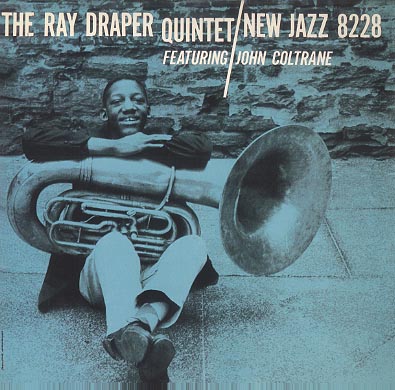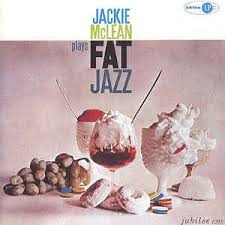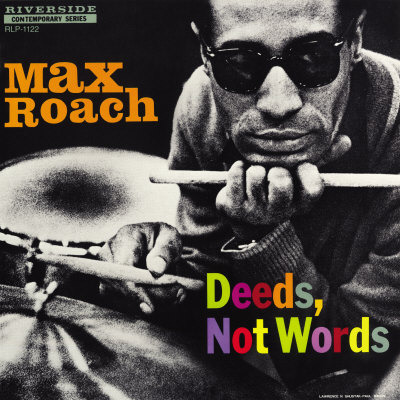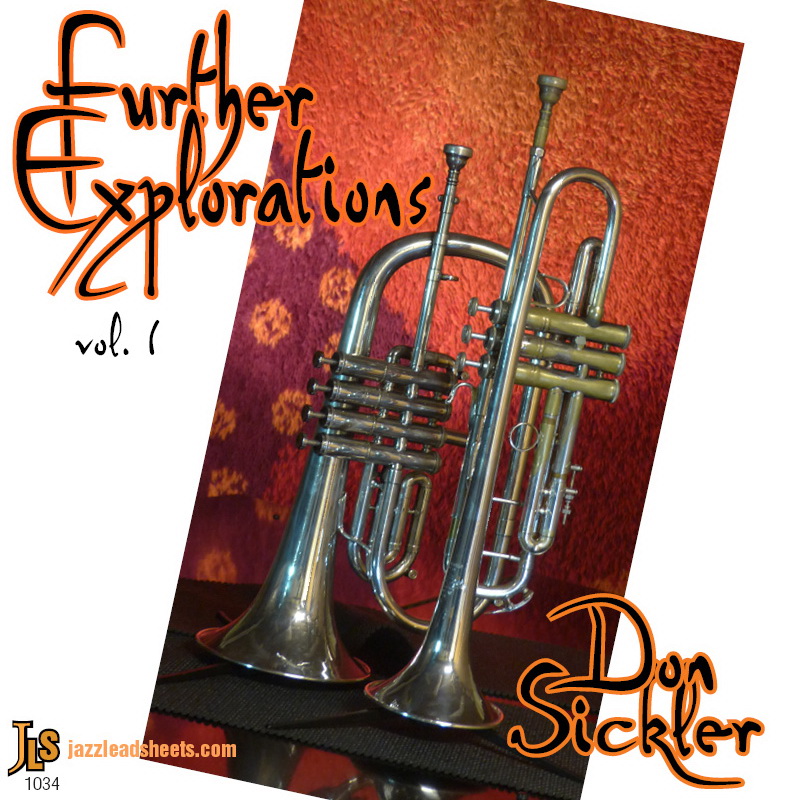Filide – Ray Draper
A great, mysterious minor Latin composition from tubaist Ray Draper. Lead sheets available in three arrangements, one of which has second parts. We now have an exclusive "Further Explorations" version available with Minus You tracks for all instruments, based on the original recording with John Coltrane, but with the melody alternating eight-measure phrases (Latin to swing).
- Recording: Ray Draper - Ray Draper With John Coltrane
- Recorded on: December 20, 1957
- Label: New Jazz (NJLP 8228)
- Concert Key: G minor
- Vocal Range: , to
- Style: Latin/swing (medium)
- Tuba - Ray Draper
- Tenor Sax - John Coltrane
- Piano - Gil Coggins
- Bass - Spanky DeBrest
- Drums - Larry Ritchie
Video
- Description
- Historical Notes
- Solos
- Piano Corner
- Bass Corner
- Drum Corner
- Guitar Corner
- Inside & Beyond
- Minus You
Ray Draper was a very talented and persuasive young man on a mission in 1957. If you think this would have been his first recording session (because he is only 17 years old at the time), you're mistaken. He recorded on three sessions earlier in 1957 when he was still only 16! The recording featured here marks his first recording of Filide, a composition he would personally record three times over the next nine months. There is some confusion about the title of this composition. The correct title is Filide, although you will often find it spelled Filidia on Coltrane reissues of what was originally a Ray Draper recording session.
Check out Philip Harper & Brandi Disterheft Live at Smalls on YouTube: Philip Harper, trumpet; Dan Kaufman, piano; Brandi Disterheft, bass; Lawrence Leathers, drums.
Related Songs
Email Send Filide to a friend
- Recording: Jackie McLean - Fat Jazz
- Recorded on: December 27, 1957
- Label: Jubilee (JGM 1093)
- Concert Key: G minor
- Vocal Range: , to
- Style: Latin/swing (medium up)
- Trumpet - Webster Young
- Alto Sax - Jackie McLean
- Tuba - Ray Draper
- Piano - Gil Coggins
- Bass - George Tucker
- Drums - Larry Ritchie
Purchase Filide - Ray Draper
Purchasing this song through our affiliate links with certain retailers provides jazzleadsheets.com with additional support to help keep us bringing you the best lead sheets available. Thank you!
Video
- Description
- Historical Notes
- Solos
- Piano Corner
- Bass Corner
- Drum Corner
- Guitar Corner
- Inside & Beyond
- Minus You
The intro reappears as an interlude after the head; here the original four measures are followed by two chords from the horns only (both whole notes) and a break for the first solo. After the out head the same interlude (except for the break) is played as a coda, with the rhythm section added on the two final long chords.
Related Songs
Email Send Filide to a friend
- Recording: Max Roach - Deeds Not Words
- Recorded on: September 4, 1958
- Label: Riverside (RLP 12-280)
- Concert Key: G minor
- Vocal Range: , to
- Style: Latin/swing (medium)
- Trumpet - Booker Little
- Tenor Sax - George Coleman
- Tuba - Ray Draper
- Bass - Art Davis
- Drums - Max Roach
Purchase Filide - Ray Draper
Purchasing this song through our affiliate links with certain retailers provides jazzleadsheets.com with additional support to help keep us bringing you the best lead sheets available. Thank you!
Video
- Description
- Historical Notes
- Solos
- Piano Corner
- Bass Corner
- Drum Corner
- Guitar Corner
- Inside & Beyond
- Minus You
If you play in a quintet, you'll notice the second parts are also available separately. Besides the second part counter melody or harmony part, you'll also notice the melody is phrased differently from the way the melody is played on the quintet recording with Coltrane. Also the solo section now alternates from Latin to swing.
On the two TV performances, the group plays Booker Little's Minor Mode.
Related Songs
Email Send Filide to a friend
- Recording: Don Sickler - Further Explorations Vol. 1
- Recorded on: January 25, 2014
- Label: jazzleadsheets.com (JLS 1034)
- Concert Key: G minor
- Vocal Range: , to
- Style: Latin/swing (medium up)
- Trumpet - Don Sickler
- Piano - Ben Rosenblum
- Bass - Ben Rubens
- Drums - Ben Zweig
Video
- Description
- Historical Notes
- Solos
- Piano Corner
- Bass Corner
- Drum Corner
- Guitar Corner
- Inside & Beyond
- Minus You
Our Minus You tracks have two solo choruses alternating Latin and swing as in the head, and two solo choruses that swing throughout. Click on the Minus You tab for more details.
Don Sickler: In the late 1970s when Ray was having some hard times, he stayed with my wife Maureen and myself on the now famous couch in our rehearsal studio (quite a few artists have spent a night or two on that slide-out-into-a-bed couch! With Ray on the premises, I got to explore a lot of his music. I played Filide with him quite a few times, often in a different way than he had recorded it: we alternated between Latin A sections and swing B sections. I always liked this, so that's the way I recorded it.
Maureen also just reminded me: "Ray made rice pudding while he was staying here, and it was the best rice pudding I ever had!"
Besides our melody parts, a piano part (also for drummers) and a bass part are available. The melody and all relevant rhythm section information is included in these parts.
clip The format of this recording is:
-- intro
-- melody 2 times (A-Latin/B-swing)
-- interlude (C)
-- trumpet solo 2 choruses (alternating Latin/swing)
-- interlude
-- trumpet solo 2 choruses (swing)
-- out melody 2 times (A-Latin/B-swing)
-- interlude (C) as ending
Note that the interlude does not return after the last solo chorus, which goes straight into the out melody.
mp3 minus melody
-- count off sets up the intro
-- play the intro
-- play the melody 2 times (A-Latin/B-swing)
-- play the interlude (C)
-- solo 2 choruses (Latin D, swing E)
-- play the interlude
-- solo 2 more choruses (swing)
-- play the out melody 2 times (A-Latin/B-swing)
-- interlude C as ending
mp3 minus Piano
-- count off sets up the intro
-- play the intro
-- comp for the melody 2 times (A-Latin/B-swing)
-- play the interlude (C)
-- comp for the trumpet solo 2 choruses (Latin D, swing E)
-- play the interlude
-- comp for the trumpet solo 2 choruses (swing)
-- comp for the out melody 2 times (A-Latin/B-swing)
-- play the interlude C as ending
mp3 minus Bass
-- count off sets up the intro
-- play figures for the intro
-- play figures and walk for the melody 2 times (A-Latin/B-swing)
-- play figures for the interlude (C)
-- trumpet solo 2 choruses (Latin figures D, walk E)
-- play figures for the interlude
-- walk for the trumpet solo 2 choruses
-- play figures and walk for the out melody 2 times (A-Latin/B-swing)
-- interlude C as ending
mp3 minus Drums
-- count off sets up the intro
-- comp for the intro, melody 2 times (A-Latin/B-swing), and interlude (C)
-- comp for the trumpet solo 2 choruses (Latin D, swing E)
-- comp for the interlude
-- comp for the trumpet solo 2 choruses (swing)
-- comp for the out melody 2 times (A-Latin/B-swing)
-- interlude C as ending
mp3 Bass & Drums only - to feature piano, guitar, vibes, or any melodic instrument that likes to play without harmonic accompaniment.
-- count off sets up the intro
-- play the intro
-- play the melody 2 times (A-Latin/B-swing)
-- play the interlude (C)
-- solo 2 choruses (Latin D, swing E)
-- play the interlude
-- solo 2 more choruses (swing)
-- play the out melody 2 times (A-Latin/B-swing)
-- interlude C as ending
Related Songs
Email Send Filide to a friend
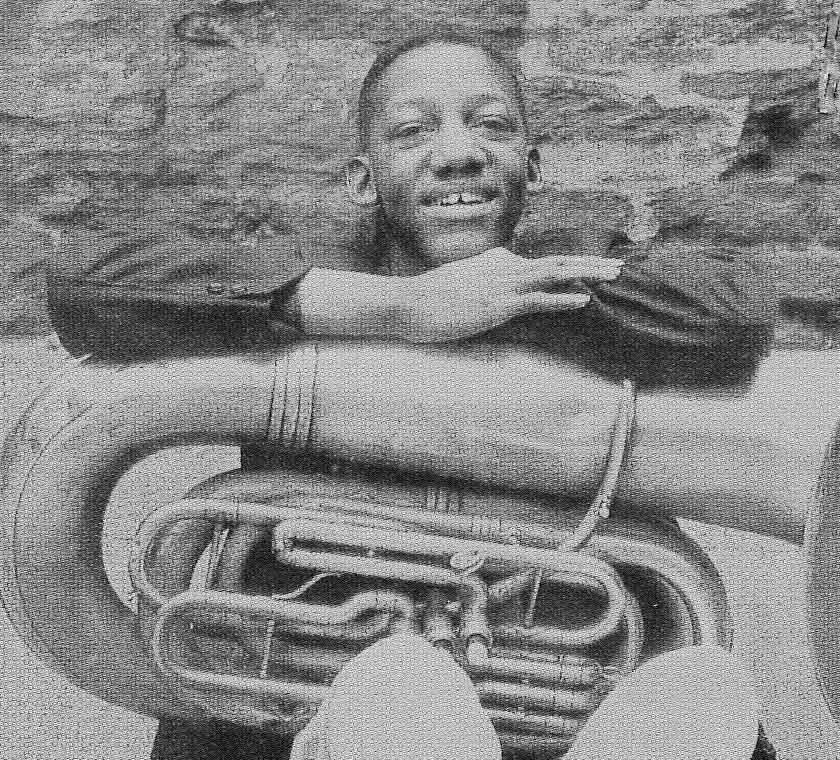
Ray Draper
August 3, 1940 – November 1, 1982
Ray Draper was born into a musical family on August 3, 1940, in New York City. His father, Barclay, played trumpet with name bands and recorded with Jelly Roll Morton, and his mother was a concert pianist. Ray went to the High School Of Performing Arts, for which he auditioned on tuba. His goal was always to make the tuba a recognized solo jazz instrument. As Nat Hentoff wrote, "He blows the hottest modern jazz tuba I've yet heard." At the young age of 16, on February 8, 1957, Ray made his first jazz recording session ("Jackie McLean & Co") for Prestige Records, for which he also arranged one of his own originals. Read more...

